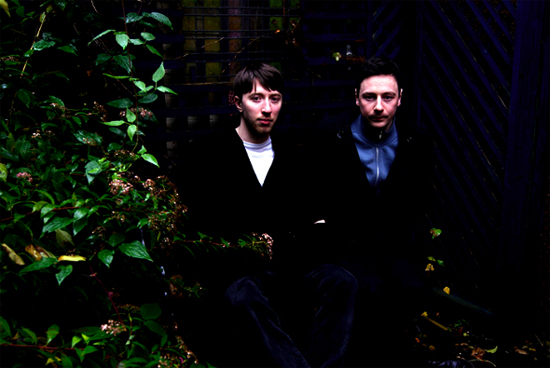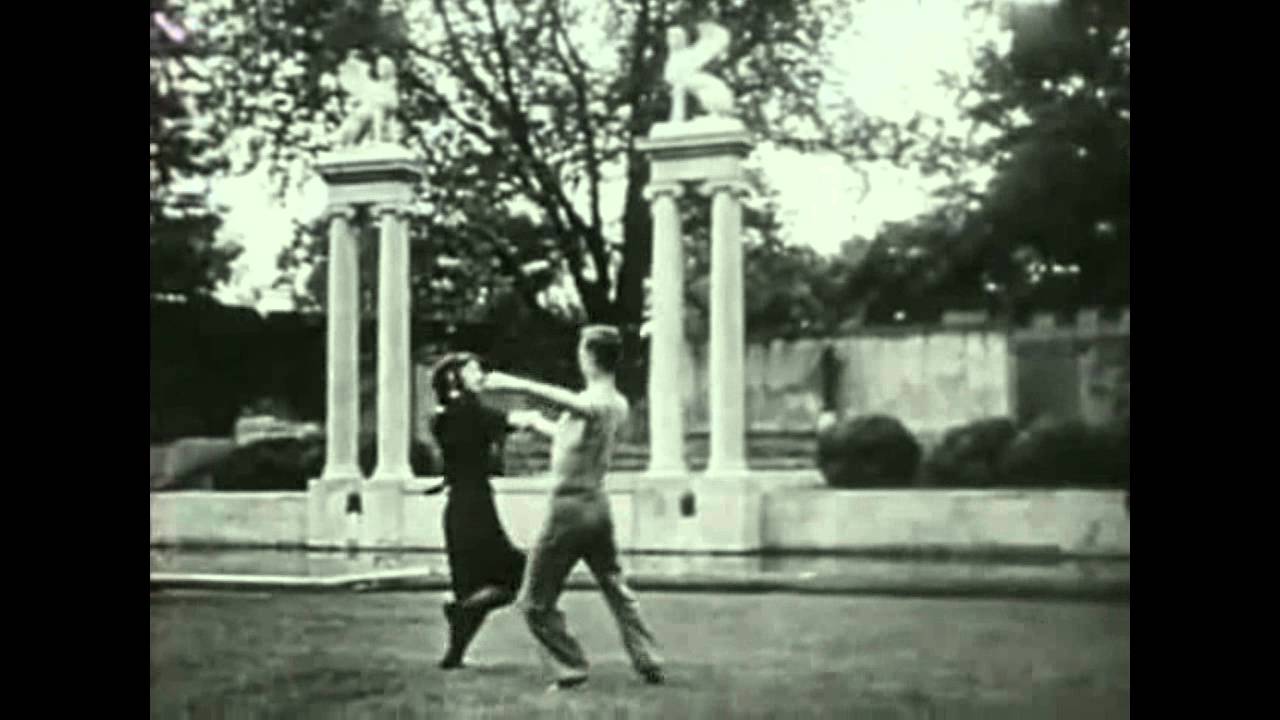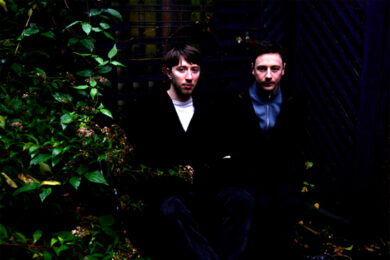Collectively, Alex Ander and Marc Dall, the duo known as Dalhous, have a bit of a bleak sense of humour. Their first release (having formerly performed and issued music under the moniker Young Hunting) was a winter 2012 10" entitled Mitchell Heisman, named for the man who, in 2010, took his own life on the campus of Harvard University before posthumously emailing a 1,904-page suicidal manifesto to his entire list of contacts. There’s something to be said for concision. And if you’re going to be nihilistic, you might as well be hilarious as well.
Ultimately, there are only two ways of looking at things: ‘it doesn’t really matter (sad face)’, or ‘it doesn’t really matter (smiley face!)’. The pair appear to have worked this out. "We’re having much more fun with the arrangements and production of the Dalhous tracks," Ander explains, "being more adventurous, doing things we would have never attempted in the past. There’s no longer an extreme one-minded path. Anything can be considered a possibility for us. We’re a lot more open-minded than we have been in the past."
It does show. Their first full-length An Ambassador For Laing, released this month on hottest ever hot imprint Blackest Ever Black, is an enjoyable listen. If the label had a summer record, this would be it. On the surface, there are immediate inflections of another certain Scottish duo whose name is all up in everyone’s headphase at the moment. But delve a bit further into Dalhous, and an ornate sonic architecture is revealed, one that’s rife with illbience, and haunted by the ghost of an undead Angelo Badalamenti.
"I feel we have unfairly been lodged in with other bands and musicians," contends Dall, "some of whom we’re fans of and others we simply hadn’t heard of until now. Tangerine Dream was the first real entry point I had into electronic music. I remember being awestruck with their soundtrack for Michael Mann’s The Keep back in the 90s – watching a wonky copy-of-a-copy on VHS."
Still, Laing is more than mere family resemblance; it’s a kaleidoscope of at times competing and at others complementing electro-acoustic subgenres – some of which were already considered quite kaleidoscopic in their own right. Where Young Hunting’s collected output was a series of dark, dense, and incontrovertibly gothic-industrial compositions, Dalhous’ latest works betray a sensibility that’s downright breezy by comparison.
‘He Was Human & He Belonged With Humans’, taken from the An Ambassador for Laing LP
"Other people’s music inspires something in me," Dall reveals. "It invigorates and re-establishes the magical possibilities in making our own music. It gives me hope that there is still so much to be explored and uncovered. I get that feeling from listening to so many different records, from something as leftfield as Sun Ra, Steve Reich or Colin Stetson, to something very familiar like Daft Punk, Tom Waits, Vangelis or even Gene Kelly’s Singing in the Rain."
The duo are rightly keen on the future. When I enquire if there are plans to revive the Young Hunting outfit, Dall replies, "Dalhous is our only focus, we have so much ground we can cover under this project. We just have to remain honest and brutally editorial with our current interests and ideas. That is what is most important to us."
Where did you get your start?
Alex Ander: Marc and I have been making music together since we were in high school. I played guitar mainly back then, but after we finished school, we started using electronics more and more to explore new directions. We mostly made lots of little ambient pieces in our bedrooms. It’s funny because recently we have been sampling some of those old recordings, from as far back 2003, for use on our second album.
Do you feel a part of a larger artistic community or tradition?
Marc Dall: I’m not sure. We’ve always felt pretty isolated, and I think that’s down to our unwillingness to be a part of anything. We have no interest in music scenes or traditions in music making. We cherish our privacy and seclusion when making music, just like I’d imagine a writer would when constructing a novel. We need to be able to think clearly and have breathing space to experiment at our own pace without pressure or distraction from what’s going on around us. I view the type of music we’re making to be very personal; it needs our one-on-one, undivided attention for it to take shape.
Are nation or geography concepts that fit into your work?
MD: In the past I wouldn’t have considered it having any effect, but since traveling a little more I can see how certain lifestyles and especially climate differences can really affect your approach and your relationship to making music. Living in Scotland, the weather is guaranteed to be pretty miserable for about 70% of the year. I spend around the same time indoors with the curtains closed and the headphones on. Maybe if I lived in a warmer, more colourful environment, I wouldn’t be so engaged with creating music.
‘You Don’t Know What You Want’, taken from the Mitchell Heisman EP
Do you find electronics liberating or limiting?
MD: I’m not really all that big on the advancements of technologies; it’s not something I’ve ever paid attention to. The process of creating music will always be a means to an end for me. We use sampler plugins as our main tool, ignoring all presets and soft synth options. We collect and record stuff, then continuously re-sample and experiment until we create sounds that work for an initial idea. We actually start songs with a bunch of already processed stems.
AA: The studio I work in has an amazing collection of analogue gear. We spend a lot of time running sounds into various bits of equipment, and then individually piecing them all back together into the computer for further manipulation. Although, in saying that, our favourite piece of gear happens to be an old record player I found in the street next to a bin. There’s a mic input on the front of it, and when we send audio into it, it comes back with the most distortion I’ve ever heard. It’s better than any guitar pedal I’ve used.
Do you believe that the Internet is benefiting or hurting artists and music-lovers?
AA: I love things like Spotify for discovering new music, but I find the huge, unlimited choice can sometimes be overwhelming. It’s too easy to skip between songs; I always prefer the ritual of playing vinyl. I’m more likely to listen to a record from start to finish when it’s a physical copy.
MD: I still value the physical record. I feel I don’t pay full attention to music, books, or films unless I set aside time to consciously absorb the work. I strongly believe in paying for someone’s work. In most cases, I know that buying other people’s records can contribute to them not having to work a regular job.
What is the purpose of music for you?
MD: I make music because I feel the need to distract myself from the limitations of my own reality. I enjoy the challenge of creating our own musical space to fall into, to enter into what can feel like a completely different dimension at times. I’m not sure whether that is for relaxing purposes or purely to allow myself the chance to kid myself that I’m time traveling for a short period of time, before having to come back into physical existence. I imagine our records to be solitary listening experiences, but that doesn’t mean sitting alone, locked up inside the house.
Do altered states play a role in your creative process?
MD: I’ve tried being out of it while making music but it just doesn’t work for me. I have to be lucid and alert. Otherwise, my attention span wanders and I get bored and end up lying on my bed and watching TV or something. Tiredness is as far as I go with altered states. I enjoy fighting against it and trying hard to pull myself through, clinging onto the song before I have to go to sleep and leave it to disperse from my mind until the morning. It can produce some pretty weird stuff from time to time.
AA: The Ken Russell film is pretty good at inspiring creative thought.
An Ambassador for Laing is out now via Blackest Ever Black. For more information and other BEB projects, click here to visit the label’s website.




